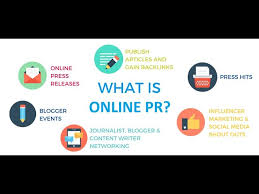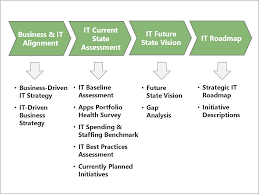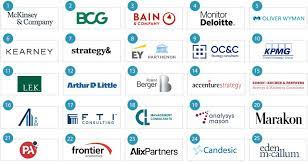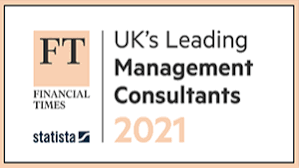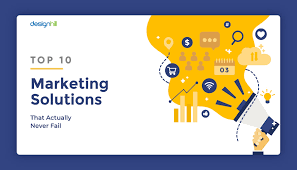The Role of a Marketer in Today’s Business Landscape
In today’s fast-paced and highly competitive business landscape, the role of a marketer has become more crucial than ever before. Marketers play a vital role in shaping and promoting brands, driving customer engagement, and ultimately contributing to the success of businesses across various industries.
One of the primary responsibilities of a marketer is to understand and connect with the target audience. Through extensive research and analysis, marketers gain valuable insights into consumer behavior, preferences, and market trends. Armed with this knowledge, they develop effective strategies to position products or services in a way that resonates with customers.
A marketer’s toolbox is diverse and ever-evolving. They utilize a range of channels such as social media, email marketing, content creation, search engine optimization (SEO), paid advertising, and more to reach their target audience. By leveraging these channels strategically, marketers ensure that their message reaches the right people at the right time.
In addition to understanding the audience, marketers also need to be adept at identifying opportunities for growth. They closely monitor market trends and competition to identify gaps or untapped segments that can be targeted for business expansion. By staying ahead of industry developments and consumer demands, marketers can help businesses stay relevant and seize new opportunities.
Building brand awareness is another critical aspect of a marketer’s role. They craft compelling brand stories that resonate with customers on an emotional level. Through consistent messaging across different touchpoints, marketers create brand loyalty and recognition. This not only helps attract new customers but also fosters long-term relationships with existing ones.
Moreover, marketers are responsible for measuring the effectiveness of their strategies through data analysis. They track key performance indicators (KPIs) such as website traffic, conversion rates, customer engagement metrics, and ROI to assess campaign success. By analyzing this data, they can make data-driven decisions to optimize future marketing efforts.
In today’s digital age where consumers have access to vast amounts of information, marketers also play a crucial role in managing a brand’s online reputation. They monitor and respond to customer feedback, manage online reviews, and address any potential crises promptly. By maintaining a positive online presence, marketers help protect a brand’s image and build trust with customers.
In conclusion, the role of a marketer is multifaceted and dynamic. They are responsible for understanding the target audience, developing effective strategies, building brand awareness, identifying growth opportunities, analyzing data, and managing online reputation. Marketers are the driving force behind successful marketing campaigns that connect businesses with their customers in meaningful ways. In today’s competitive business landscape, their expertise is invaluable for businesses aiming to thrive and succeed.
8 Essential Tips for Marketers in the UK
- Research your target audience – Understand who you are trying to reach and what they need from you.
- Develop a marketing plan – Set goals, create a budget and timeline, and decide which strategies to use to reach your target audience.
- Utilise the right channels – Choose the most effective channels for your message, such as social media, email campaigns or paid advertising.
- Create compelling content – Ensure that your content is interesting and engaging for your target audience.
- Monitor metrics – Track results so you can measure the success of each campaign and adjust accordingly.
- Take advantage of automation tools – Automation tools can help save time by automating repetitive tasks like scheduling posts or sending emails on specific days of the week or month.
- Stay up to date with trends – Keep an eye on industry developments so you know what’s working for others in the market and can stay ahead of the competition
- Test different approaches – Experimenting with different strategies will help you find out what works best for your brand and customers
Research your target audience – Understand who you are trying to reach and what they need from you.
Research Your Target Audience: Understanding the Needs of Your Customers
In the world of marketing, one of the most important tips for any marketer is to thoroughly research their target audience. To effectively connect with your customers and drive meaningful engagement, it is crucial to understand who you are trying to reach and what they need from you.
When it comes to research, marketers must go beyond surface-level demographics. While age, gender, location, and other demographic factors provide a starting point, it is essential to dig deeper. Take the time to understand your audience’s motivations, challenges, aspirations, and pain points.
By gaining insights into their needs and desires, you can tailor your marketing efforts to resonate with your target audience on a deeper level. This understanding will enable you to craft messages that address their specific pain points and offer solutions that genuinely meet their needs.
Conducting thorough market research allows you to identify trends and preferences within your target audience. This knowledge empowers you to create products or services that align with their expectations and preferences. It also helps in identifying gaps in the market that can be targeted for business growth.
Moreover, understanding your target audience enables you to choose the most effective channels and platforms for reaching them. By knowing where they spend their time online or offline, you can focus your marketing efforts on those specific channels. This targeted approach ensures that your message reaches the right people at the right time.
Researching your target audience also helps in developing customer personas – fictional representations of your ideal customers. These personas encompass various characteristics such as demographics, behaviors, goals, challenges, and preferences. Customer personas serve as a reference point throughout your marketing campaigns and help ensure that all messaging aligns with the needs of your ideal customers.
In summary, conducting thorough research on your target audience is an essential step for any marketer. By understanding who you are trying to reach and what they need from you, you can develop tailored marketing strategies that resonate with your customers. This knowledge allows you to create relevant content, choose the right channels, and ultimately build strong relationships with your target audience. Remember, the better you understand your customers, the more effectively you can meet their needs and drive business success.
Develop a marketing plan – Set goals, create a budget and timeline, and decide which strategies to use to reach your target audience.
Developing a Marketing Plan: A Key Tip for Marketers
In the ever-evolving world of marketing, having a well-defined plan is crucial for success. A marketing plan serves as a roadmap that guides marketers in achieving their goals and effectively reaching their target audience. It involves setting clear objectives, creating a budget and timeline, and strategically selecting the most appropriate strategies to implement.
The first step in developing a marketing plan is setting goals. These goals should be specific, measurable, achievable, relevant, and time-bound (SMART). Whether it’s increasing brand awareness, generating leads, boosting sales, or expanding into new markets, clearly defined goals provide direction and focus for marketing efforts.
Once the goals are established, it’s important to create a budget and timeline. Allocating resources effectively ensures that marketing activities are carried out efficiently without overspending. The budget should consider various aspects such as advertising costs, content creation expenses, technology investments, and any other relevant factors. Similarly, establishing a realistic timeline helps in organizing tasks and ensuring that deadlines are met.
Deciding on the strategies to reach the target audience is another critical aspect of developing a marketing plan. This involves understanding the target audience’s preferences, behavior patterns, and where they can be reached most effectively. It may include a combination of channels such as social media platforms, email campaigns, content marketing initiatives, search engine optimization (SEO), paid advertising campaigns or collaborations with influencers or industry partners.
When selecting strategies for reaching the target audience, it’s important to consider factors such as budget limitations and available resources. Each strategy should align with the overall goals of the marketing plan while maximizing impact within the given constraints.
Regularly reviewing and adjusting the marketing plan is also essential. As market conditions change or new opportunities arise, it’s important to adapt strategies accordingly. By continuously evaluating performance metrics and staying abreast of industry trends and consumer insights, marketers can refine their approach to ensure optimal results.
In conclusion, developing a marketing plan is a fundamental tip for marketers. It provides a structured approach to achieving marketing goals, allocating resources effectively, and selecting the most suitable strategies to reach the intended audience. By setting clear objectives, creating a budget and timeline, and regularly reviewing and adjusting the plan, marketers can navigate the dynamic marketing landscape with confidence and maximize their chances of success.
Utilise the Right Channels: Choosing the Most Effective Channels for Your Message
In today’s digital age, where consumers are constantly bombarded with information, it is crucial for marketers to choose the right channels to effectively reach their target audience. Utilising the appropriate channels can make all the difference in delivering a message that resonates and drives engagement. Here are some key considerations when selecting channels for your marketing campaigns.
- Understand Your Target Audience: Before deciding on which channels to use, it is essential to have a deep understanding of your target audience. Research their demographics, preferences, and online behaviour. This knowledge will help you identify where your audience spends their time and what platforms they are most likely to engage with.
- Social Media Platforms: Social media has become an integral part of people’s lives, making it an excellent channel for reaching a wide audience. However, not all social media platforms are created equal. Each platform has its own unique user base and content format. Consider the demographics and interests of your target audience when choosing which platforms to focus on.
- Email Campaigns: Email marketing remains one of the most effective ways to communicate directly with customers. It allows for personalized messaging and provides an opportunity to nurture leads or maintain customer relationships over time. Ensure that your email campaigns are well-designed, mobile-friendly, and provide valuable content that encourages recipients to take action.
- Paid Advertising: Paid advertising offers targeted reach by allowing you to display ads specifically to your desired audience segments. Platforms like Google Ads and social media advertising (such as Facebook Ads) provide extensive targeting options based on demographics, interests, or online behaviour. Invest in paid advertising strategically by aligning it with your campaign goals and budget.
- Content Marketing: Creating valuable content is essential for engaging and attracting customers. Consider using channels such as blogs, podcasts, videos, or infographics to share relevant information or storytelling that resonates with your target audience. Distribute your content through channels that align with your audience’s preferences and behaviour.
- Analyse and Optimise: Continuously monitor and analyse the performance of your marketing channels. Track metrics like reach, engagement, conversion rates, and ROI to evaluate the effectiveness of each channel. Use this data to make informed decisions and optimize your strategies for better results.
Remember, every business is unique, so it’s crucial to tailor your channel selection to suit your specific goals and target audience. By choosing the most effective channels for your message, such as social media, email campaigns, or paid advertising, you can maximise your marketing efforts and connect with your audience in a meaningful way.
Create compelling content – Ensure that your content is interesting and engaging for your target audience.
Create Compelling Content: Engaging Your Target Audience
In the ever-expanding digital realm, creating compelling content has become a cornerstone of successful marketing strategies. With countless brands vying for attention, it is crucial for marketers to craft content that captivates and resonates with their target audience.
The first step in creating compelling content is understanding your audience. Take the time to research and analyze their preferences, interests, and pain points. By gaining insights into their needs and desires, you can tailor your content to address their specific challenges or provide valuable information.
Once armed with this knowledge, focus on crafting content that is interesting and engaging. Start by developing a strong headline or opening statement that grabs attention and entices readers to delve deeper. A captivating introduction sets the tone for the rest of the piece and encourages readers to stay engaged.
To maintain interest throughout the content, consider using storytelling techniques. Weaving narratives or anecdotes into your writing helps establish an emotional connection with your audience. People are more likely to remember stories rather than plain facts or statistics, making storytelling a powerful tool for engagement.
Additionally, make sure your content is easily digestible. Break down complex ideas into smaller sections or bullet points to enhance readability. Use subheadings to guide readers through different sections of your piece, allowing them to quickly find relevant information.
Visual elements also play a crucial role in capturing attention. Incorporate eye-catching images, infographics, or videos that complement your written content. Visuals not only break up text but also help convey information more effectively and enhance overall engagement.
Furthermore, encourage interaction with your audience by including calls-to-action (CTAs) within your content. Whether it’s inviting readers to leave comments, share their opinions on social media platforms, or sign up for newsletters, CTAs prompt active participation and foster a sense of community.
Lastly, don’t forget about the importance of quality over quantity. While consistency is important in maintaining an active online presence, it is equally crucial to prioritize the quality of your content. Delivering valuable and insightful information will establish your brand as a trusted source of expertise in your industry.
In conclusion, creating compelling content is an essential aspect of successful marketing. By understanding your target audience, crafting engaging stories, utilizing visuals, and encouraging interaction, you can capture the attention and interest of your readers. Remember, quality always triumphs over quantity. So take the time to create content that truly resonates with your audience and establishes your brand as a trusted authority in your field.
Monitor metrics – Track results so you can measure the success of each campaign and adjust accordingly.
Monitoring Metrics: A Key Tip for Marketers
In the ever-evolving world of marketing, staying on top of your campaigns’ performance is crucial. As a marketer, one valuable tip to remember is to monitor metrics closely. By tracking and analyzing results, you can measure the success of each campaign and make informed adjustments along the way.
Metrics provide valuable insights into how your marketing efforts are performing. They offer quantitative data that allows you to assess various aspects of your campaigns, such as reach, engagement, conversion rates, and return on investment (ROI). By regularly monitoring these metrics, you gain a clear understanding of what’s working and what needs improvement.
One essential metric to track is campaign reach. It helps you assess how many people your campaign has reached across different channels and platforms. This data helps you gauge the effectiveness of your targeting strategies and identify opportunities for expansion or refinement.
Engagement metrics are equally important. They provide insights into how your audience is interacting with your content or ads. Metrics such as likes, shares, comments, click-through rates (CTR), or time spent on a webpage help you evaluate the level of interest and resonance among your target audience.
Conversion metrics play a vital role in measuring the effectiveness of your campaigns in driving desired actions. Whether it’s generating leads, making sales, or increasing sign-ups for a newsletter, tracking conversion rates allows you to assess the impact of your marketing efforts on achieving specific goals.
Return on investment (ROI) is perhaps one of the most critical metrics for marketers. It helps determine the profitability and efficiency of your campaigns by comparing the revenue generated against the costs incurred. Calculating ROI enables you to identify which campaigns are delivering the highest returns and allocate resources accordingly.
Once you start monitoring these metrics regularly, it’s crucial to analyze the data to draw actionable insights. Look for patterns or trends that emerge from different campaigns or channels. Identify any areas where performance may be falling short or exceeding expectations. This analysis allows you to make data-driven decisions and adjust your strategies accordingly.
Adjustments can include optimizing targeting parameters, refining messaging, reallocating budget towards more successful campaigns, or experimenting with new approaches. By continuously monitoring metrics and making informed adjustments, you can enhance the overall effectiveness of your marketing efforts and drive better results.
In conclusion, monitoring metrics is a fundamental tip for marketers. It enables you to measure the success of each campaign and make data-driven adjustments along the way. By tracking metrics such as reach, engagement, conversion rates, and ROI, you gain valuable insights into your marketing performance. This empowers you to optimize your strategies, improve outcomes, and ultimately achieve greater success in your marketing initiatives.
Take advantage of automation tools – Automation tools can help save time by automating repetitive tasks like scheduling posts or sending emails on specific days of the week or month.
In the fast-paced world of marketing, time is a valuable resource. That’s why savvy marketers are taking advantage of automation tools to streamline their workflows and maximize efficiency. Automation tools offer a range of benefits, allowing marketers to save time and focus on more strategic initiatives.
One key advantage of automation tools is their ability to handle repetitive tasks. Marketers often find themselves scheduling social media posts or sending out regular email newsletters. These tasks can be time-consuming and tedious when done manually. However, with automation tools, marketers can set up schedules in advance, ensuring that posts or emails are sent out automatically on specific days of the week or month. This frees up valuable time that can be allocated to other important marketing activities.
By automating these repetitive tasks, marketers also reduce the risk of human error. Manual scheduling can sometimes lead to mistakes such as posting at the wrong time or missing an email send-out. Automation tools provide a reliable and consistent way to execute these tasks, minimizing the chances of errors and ensuring that messages reach the intended audience at the right time.
Furthermore, automation tools offer advanced features that enable marketers to personalize their communications at scale. With data-driven insights and segmentation capabilities, marketers can create targeted campaigns tailored to specific customer segments or demographics. Automation tools allow for dynamic content insertion, enabling personalized messages that resonate with individual recipients. This level of personalization helps build stronger connections with customers and enhances overall campaign effectiveness.
Automation tools also provide valuable analytics and reporting features. Marketers can track engagement metrics, conversion rates, and other key performance indicators (KPIs) in real-time through intuitive dashboards. This data-driven approach allows for quick analysis and optimization of marketing strategies based on actionable insights.
It’s important to note that while automation tools offer significant benefits, they should be used strategically and in conjunction with human expertise. Marketers should still actively monitor campaigns and make adjustments as needed based on performance data.
In conclusion, taking advantage of automation tools is a smart move for marketers looking to save time, increase efficiency, and enhance campaign effectiveness. By automating repetitive tasks such as scheduling posts or sending emails, marketers can focus on more strategic initiatives and allocate their time and resources more effectively. Automation tools also provide opportunities for personalization at scale and offer valuable data insights that drive informed decision-making. Embracing automation is a key step towards achieving marketing success in today’s digital landscape.
Stay up to date with trends – Keep an eye on industry developments so you know what’s working for others in the market and can stay ahead of the competition
Staying Up to Date with Trends: A Marketer’s Secret Weapon
In the ever-evolving world of marketing, staying up to date with the latest trends is essential for success. As a marketer, it is crucial to keep an eye on industry developments, as this knowledge can give you a competitive edge and help you stay ahead of the game.
Why is staying up to date with trends so important? Well, for starters, it allows you to see what strategies and tactics are working for others in your market. By observing successful campaigns and initiatives, you can gain valuable insights into what resonates with your target audience. This knowledge can guide your own marketing efforts and help you create more effective strategies.
Furthermore, staying informed about industry trends enables you to anticipate changes in consumer behavior and preferences. By understanding the evolving needs and desires of your target audience, you can tailor your messaging and offerings accordingly. This proactive approach positions you as a leader in your field and ensures that you are consistently meeting customer expectations.
Staying ahead of the competition is another significant advantage of keeping up with trends. By being aware of what competitors are doing, you can identify potential gaps or opportunities in the market. You can then adjust your own strategies or develop innovative ideas that set you apart from the competition. Constantly monitoring industry developments allows you to adapt quickly and make informed decisions that keep your brand one step ahead.
So how can marketers stay up to date with trends? There are several ways to do so effectively. Firstly, invest time in reading industry publications, blogs, and newsletters specific to your field. These sources often provide valuable insights into emerging trends and best practices.
Attending conferences, webinars, or workshops related to marketing can also be beneficial. These events not only offer opportunities for networking but also provide access to thought leaders who share their expertise on current trends and future predictions.
Engaging with online communities or forums dedicated to marketing is another great way to stay informed. These platforms allow you to connect with fellow marketers, share ideas, and discuss industry trends. Additionally, following influential voices on social media platforms like LinkedIn or Twitter can provide real-time updates and valuable insights.
In conclusion, staying up to date with trends is a secret weapon for marketers. By keeping an eye on industry developments, you can learn from successful campaigns, anticipate changes in consumer behavior, and stay ahead of the competition. Embrace the ever-changing nature of marketing and make it a priority to stay informed. Your ability to adapt and innovate based on industry trends will undoubtedly lead to greater success in your marketing efforts.
Test different approaches – Experimenting with different strategies will help you find out what works best for your brand and customers
Testing Different Approaches: Unleashing the Power of Experimentation in Marketing
In the ever-evolving world of marketing, one tip stands out as a guiding principle: test different approaches. By experimenting with various strategies, marketers can unlock valuable insights that help them identify what works best for their brand and customers.
Every brand is unique, and what resonates with one audience may not necessarily have the same impact on another. This is where testing becomes crucial. By trying out different approaches, marketers can gain a deeper understanding of their target audience’s preferences, needs, and behaviours.
Experimentation allows marketers to explore new avenues and push boundaries. It encourages innovation and creativity by challenging conventional thinking and exploring uncharted territories. By stepping out of their comfort zones, marketers can uncover hidden opportunities that may have otherwise gone unnoticed.
Furthermore, testing different approaches provides marketers with concrete data to support decision-making. It allows them to gather insights on customer engagement, response rates, conversion rates, and other key performance indicators. Armed with this information, marketers can make informed choices about which strategies to pursue further and which ones to refine or discard.
The beauty of experimentation lies in its flexibility. Marketers can test various elements such as messaging, visuals, channels, timing, pricing strategies, and more. They can conduct A/B tests where two versions of a campaign are run simultaneously to compare results objectively. This empirical approach ensures that marketing efforts are driven by evidence rather than assumptions.
It’s important to remember that testing isn’t a one-time activity; it’s an ongoing process. As customer preferences change and market dynamics evolve, what worked yesterday may not work tomorrow. Marketers must continuously adapt and refine their strategies based on real-time feedback from their experiments.
However, it’s essential to approach experimentation with a structured mindset. Randomly trying different approaches without clear objectives or proper measurement mechanisms may yield inconclusive results or waste resources. Marketers should define clear goals for their experiments, establish key metrics to track, and ensure that the results are actionable.
In conclusion, testing different approaches is a powerful tool in a marketer’s arsenal. It allows them to uncover valuable insights about their target audience, make data-driven decisions, and drive innovation. By embracing experimentation as a core principle, marketers can refine their strategies, optimize their campaigns, and ultimately achieve better results for their brand and customers. So go ahead, explore new horizons, test the waters, and unlock the potential of your marketing efforts through experimentation.



